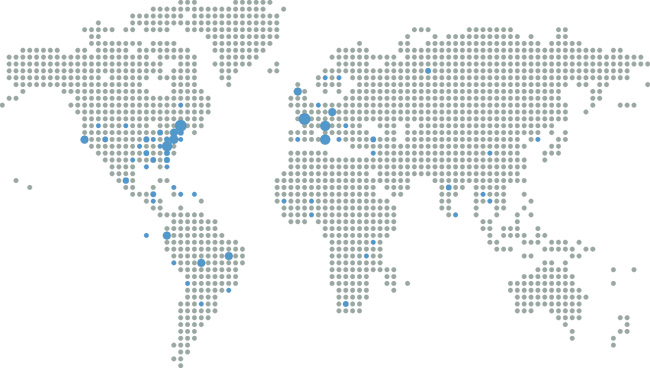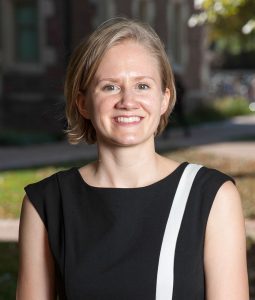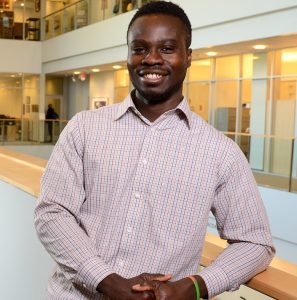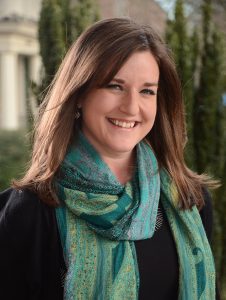Privately funded Off-Campus Dissertation Fellowships enable graduate students to pursue new knowledge across the globe
“I hope the university can continue to offer opportunities like this to graduate students in the future.” —Stephanie Gaskill
What happens when graduate students have the opportunity to extend their research beyond the confines of locally accessible campus resources? The Graduate School’s Off-Campus Dissertation Fellowship provides just that opportunity to doctoral students at UNC-Chapel Hill. This competitive fellowship enables Carolina graduate students to conduct research across the globe: in the field, in libraries or archives far from the Chapel Hill campus. As a result, they can conduct research of the highest quality that makes significant contributions to new knowledge within their disciplines and around the world.

Since fall 2011, fellows have conducted research in 42 locations around the globe:
Argentina, Belguim, Belize, Bolivia, Brazil, Burkina Faso, Cambodia, Canada, Chile, China, Cuba, Ecuador, France, Galápagos, Gambia, Germany, Ghana, Greece, Haiti, Honduras, Hungary, India, Israel, Italy, Korea, Malawi, Mexico, Norway, Peru, Puerto Rico, Russia, South Africa, Spain, Sri Lanka, Sweden, Switzerland, Tanzania, Thailand, Turkey, United Kingdom, United States (26 states), and Uruguay
Most doctoral students commonly support themselves through teaching and research assistantships during their degree programs. Non-service fellowships—such as the Off-Campus Dissertation Fellowship—offer doctoral students a means of supporting themselves while away from these standard sources of financial support. For more than 50 years, generous gifts from dedicated donors have enabled ambitious doctoral students to have the opportunity to pursue their unique research interests no matter where that pursuit may take them. The map above illustrates where in the world the Off-Campus Dissertation Fellowship has taken doctoral students during the past five years. The work of three recent fellowship recipients is highlighted below.

Stephanie Gaskill, Religious Studies
Research site
Louisiana State Penitentiary
The Louisiana State Penitentiary (Angola Prison) is a former slave plantation currently renowned for faith-based “moral rehabilitation.” Stephanie Gaskill interviewed formerly incarcerated people, prison ministry volunteers, state legislators, judges and prisoners’ family members to determine the role religion and race play in state-level criminal justice reform within and outside Angola’s walls.
Personal interest
Curiosity about the role religion has played in mass incarceration, fueled by Jerma Jackson’s course on African-American history, and reading Heather Thompson’s Why Mass Incarceration Matters.

Interesting find
A state senator actually directly referenced moral rehabilitation in a bill he sponsored, and an instructor at Angola’s seminary brought the bill to him. Such direct connections between moral rehabilitation and legislative action were unexpected.
Greatest challenge
Finding time to interview busy state senators and representatives at length in the heart of legislative season.
Most rewarding
Spending time really getting to know the people being interviewed. The face-to-face interviews were much more personal and productive than phone interviews would have been.
“I truly appreciate the opportunities the Off-Campus Dissertation Fellowship offered me. Being able to live in Louisiana continuously for six months allowed me to get a real sense of how religion and race intertwine in criminal justice reform efforts at the state level.”

Leslie Cofie, Health Behavior
Research site
Rural communities and health-care centers throughout northern and central regions of Ghana
Health facility birth assisted by a skilled birth attendant is considered one of the most important means of preventing maternal deaths. Leslie Cofie interviewed women and health providers in rural areas of Ghana to understand how pregnant women ultimately decide whether or not to use health-care services in delivery.
Personal interest
A desire to work with underserved populations in global health research, and engage in applicable and translational research. Cofie was also born and grew up in Accra, the capital of Ghana, before moving to the United States.

Interesting find
Women whose social networks were able to mobilize resources to get them to a health facility during labor were more likely to give birth in health facilities. Community engagement efforts have been effective in improving access to health services and encouraging women to use these facilities.
Greatest challenge
Language barriers aside, conducting research in a developing country and experiencing what it really means to be in remote parts of the world. This meant sometimes not having access to simple things that are taken for granted, such as electricity and clean drinking water.
Most rewarding
The ability to place findings in their proper contexts, be there in person, design the research and see it through from beginning to end.
“Being off campus, going abroad and doing this research really affirmed my goals of wanting to be a global health worker. This is something most public health researchers dream of, and I feel very fortunate to have that opportunity.”

Gina Bombola, Musicology
Research site
The Cinematic Arts Library at the University of Southern California and Margaret Herrick Library
Gina Bombola dove into the archives at the USC Cinematic Arts Library to look at unpublished studio documents—including scripts, studio production files and publicity materials—to examine how Hollywood’s approach to making and marketing operatic musical films reshaped the American public’s perception of operatic culture. Bombola explored issues such as gender, ethnicity, class and music appreciation during a period of 20 years.
Personal interest
A lifelong fascination with classic Hollywood cinema and interest in women’s history, socially engaged music and film studies.

Interesting find
The most exciting finds came from Paramount Pictures production files. Paramount kept excellent records, including anything from script drafts to studio correspondence to film budgets. Bombola even found lists of moviegoers’ comments from three sneak previews, a rare find even in film archives. These comments illuminate negative responses to what moviegoers felt was World War II propaganda in the films.
Greatest challenge
Driving in Los Angeles traffic every day to and from the archives!
Most rewarding
Being able to spend time with the materials to gain a comprehensive perspective, even within the constraints of the archives’ hours of operations and no-photo policy.
“You never know how much material might be held in the archives before visiting. I found a wealth of material that I would love to discuss, but simply don’t have room for in my dissertation!”
